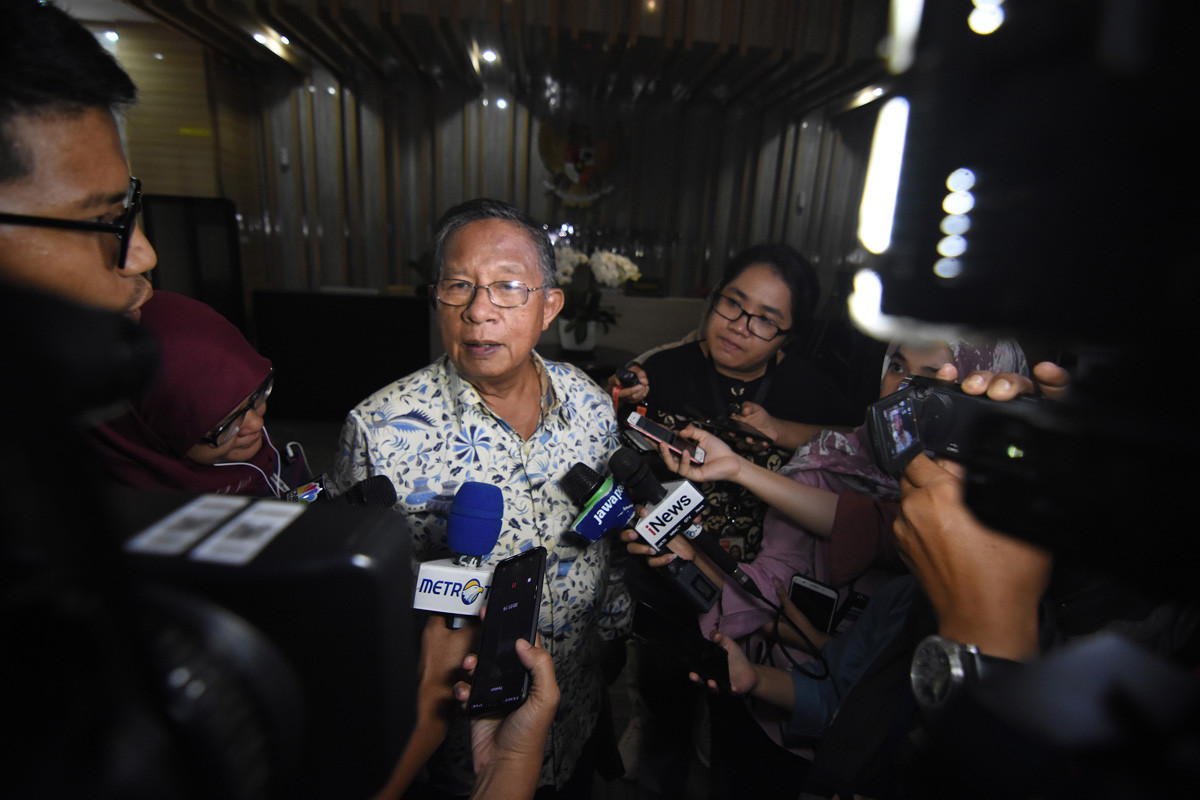Hopes high Red and White Catalyst will boost biofuel production
terça-feira, setembro 10, 2019
 |
| Coordinating Economic Minister Darmin Nasution (center).(Antara/Indrianto Eko Suwarso) |
Coordinating Economic Minister Darmin Nasution has urged researchers to complete a study on a new chemical catalyst expected to become a key ingredient in ramping up domestic biofuel production.
Pertamina Research and Technology Center – owned state-owned oil and gas company Pertamina – has supported the Bandung Institute of Technology (ITB) to develop the so-called Red and White Catalyst. The substance, the name of which is a nod to the Indonesian flag, can accelerate the chemical conversion of palm oil into biofuels.
The use of the catalyst, combined with the policy that mandates the use of fuel with 30 percent biodiesel content ( B30 ) would lower Indonesia’s oil imports and create a new market for its crude palm oil, Darmin said.
“What can we solve with such big policies? This is it. Biodiesel, green diesel, products we are preparing. This is why we come here because we know ITB is developing such a catalyst,” he said during a visit to ITB on Friday.
Previously, Finance Minister Sri Mulyani Indrawati, Coordinating Maritime Affairs Minister Luhut Pandjaitan and Research, Technology and Higher Education Minister Mohamad Nasir have also visited the university, demonstrating the government's seriousness about supporting the institute’s research.
Bank Indonesia’s (BI) latest quarterly balance of payments report showed that the country’s net oil imports in the January to June period this year stood at US$7.86 billion, which is lower than imports in the same period last year of $9.52 billion. However, oil imports remain one of the largest contributors to the country’s current account deficit.
Indonesia is also one of the world’s largest exporters of crude palm oil, meaning the European Union’s (EU) plan to phase out palm oil-based biodiesel has put Indonesian palm oil producers – who have major lobbying power over the government – on edge over what to do with their excess production.
The EU, which imported 4.78 million tons of crude palm oil from Indonesia last year, is the country’s second biggest customer for the product. Two-thirds of the region’s imports is for biofuel, while the remainder is processed into consumer goods such as soap, noodles and cookies.
The Indonesian government, which sees the B30 policy as a way to kill two birds with one stone, is currently awaiting the results of a B30 road test conducted by the energy ministry. If the test results are positive, Indonesia will implement the policy starting Jan. 1 next year.
Darmin estimated Indonesia could begin introducing a B50 policy within one to two years. “I can’t say exactly when yet. The stakeholders need to sit down together first,” he stated.
ITB chemical reaction laboratory head Subagjo said the university and Pertamina were still testing the new catalyst in a Pertamina-owned diesel refinery unit in Dumai, Riau province, but said the results had so far been positive.
The Research, Technology and Higher Education Ministry, which has been sponsoring the development of the catalyst since 2017, said in a statement in May that the Dumai refinery had used Red and White to produce a usable biodiesel composed of 87.5 percent diesel and 12.5 percent palm oil.
Going forward, Subagjo said Pertamina and the university were looking to begin trials on using the catalyst to produce palm oil-mixed gasoline and palm oil-mixed jet fuel. Producing the latter product requires additional financial support from the Indonesian Oil Palm Estate Fund (BPDP-KS).
“For biogasoline, the refinery in Plaju [South Sumatra] is ready. Pertamina is ready. Next, we’ll duplicate the process at the Cilacap [Central Java] and Balongan [West Java] refineries,” he said. (nor)
Page: The Jakarta Post


















0 comentários
Agradecemos seu comentário! Volte sempre :)